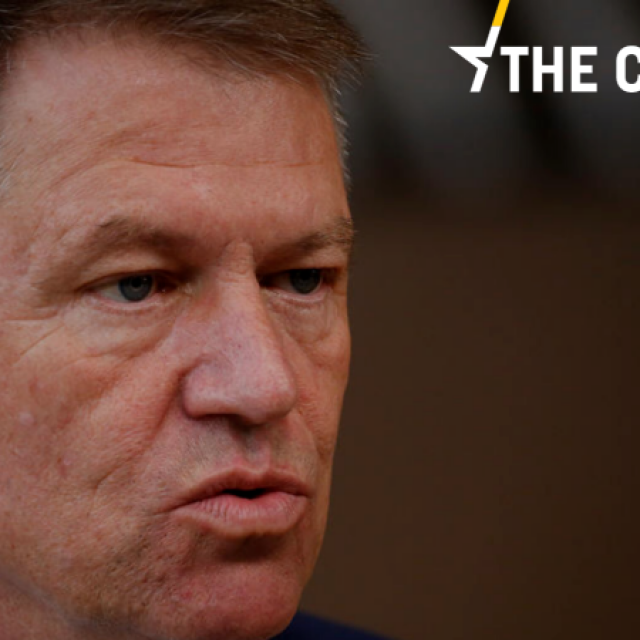
Before you start reading today’s edition of the Capitals, feel free to have a look at the article “EU recovery fund should hit €1.5 trillion, Gentiloni says“,
To stay up-to-date on everything to do with the coronavirus across the capitals, feel free to check out EURACTIV’s comprehensive overview, which is regularly updated with the help of our network of offices and media partners.
EU INSTITUTIONS
EU’s Libya naval mission to begin work ‘within days’. The EU’s delayed naval mission to enforce an arms embargo on Libya will be ready to begin work in the coming days, EU officials confirmed on Wednesday (29 April), two days after Libyan militia commander Khalifa Haftar terminated a 2015 UN agreement, reducing the chances of a political solution to the conflict. Alexandra Brzozowski has the story.
In today’s news from the Capitals:
LISBON. Portugal’s Infrastructure Minister Pedro Nuno Santos said on Wednesday (29 April) that any injection of state funds in the Portuguese flag carrier TAP “will imply” that the government will have more say in the company’s major decisions in the near future. EURACTIV’s partner Lusa.pt takes a closer look.
///
BERLIN
Neo-nazi charged with politician’s murder. Federal prosecutors have charged the Hessian neo-Nazi Stephan Ernst together with his accomplice identified in German media as Markus H for the murder on 1 June 2019 of municipal politician Walter Lübcke of the Christian Democratic Union (CDU). As the president of the Hessian city of Kassel, Lübcke had become the lightning rod for far-right hatred when he supported housing refugees in the city in October 2015.
In other news, state and federal family ministers have agreed to a “careful and gradual” plan to reopen Germany’s daycare centres. While the relaxation plan sets out four phases that will be accompanied by studies, concrete dates for each step will be decided at the next meeting between the federal government and state leaders.
Also read: German cabinet amends renewable energy rules due to COVID-19
///
PARIS
French unions urge Amazon to resume activities gradually. In a joint statement released on Wednesday (29 April), the CGT, CFDT and SUD, three of France’s largest groups of trade unions, proposed that Amazon France’s management gradually resume its activities after the US logistics giant closed its French centres until 5 May.
“Contrary to what you see everywhere, the trade union organisations, almost unanimous, have no other goal than to protect the health of employees, temporary workers, employees of outside companies working in the warehouses and the relatives of all these workers,” the three unions said. (EURACTIV.FR)
Also read: French government forced to delay vote on COVID-19 tracking app proposal
///
BRUSSELS
Start of deconfinement confirmed. The first phase of the exit plan can start next Monday, as “experts say the evolution of the epidemic allows it”. The experts also insist that “the protective measures – testing and contact tracing – should be operational as soon as possible,” Prime Minister Sophie Wilmès confirmed. The start of the deconfinement measures comes as public support for lockdown measures is slipping, according to a recent poll. Alexandra Brzozowski has more details.
Read more about the different phases of the exit plan here.
///
LONDON
UK media watchdog director joins Facebook. A top official has been poached by Facebook from the UK’s media watchdog, the Office of Communications (Ofcom). The move comes at a time when the UK is readying broad legislation to crack down on offensive content online. Samuel Stolton digs deeper.
VIENNA
Plans to boost the Austrian economy. Chancellor Sebastian Kurz and Vice-Chancellor Werner Kogler rolled out a plan to boost the Austrian economy at a joint press conference on Wednesday (29 April). While the pair outlined the three main areas of their proposal, which include tax reductions for low and middle-income workers, relief for the economy to “save, maintain and create” new jobs, as well as investments in climate and digitalisation, they did not give concrete details on implementation. (Sarah Lawton | EURACTIV.de)
///
STOCKHOLM
Will the murder of Olof Palme finally be solved? Thirty-four years after Sweden’s former Prime Minister, Olof Palme was murdered in February 1986 in the centre of Stockholm, a breakthrough in investigations may be close at hand. Pekka Vänttinen reports from Helsinki.
EUROPE’S SOUTH
MADRID
De-escalation at different speed. Spain’s coronavirus lockdown will be lifted in stages although de-escalation could progress at different speeds at provincial level, Prime Minister Pedro Sánchez said in a televised address Tuesday (28 April), without giving fixed dates for each stage. “By the end of June we will be in a new normality if the evolution of the pandemic is brought under control in all of our territories,” he added. EURACTIV’s partner EFE reports.
Also read: Spain’s circular economy says ‘adiós’ to countryside and city waste
///
ROME
Centre-right governors challenge government. In open defiance of the government, the president of Calabria region, Iole Santelli, issued an order that will allow customers to go to bars and restaurants as from today (30 April), if served in areas with outdoor seating. Open-air markets will resume their activities too, while citizens will be permitted to travel in the whole territory of the region and to practice individual outdoor sports. Gerardo Fortuna reports.
///
![Currently, while the state has 50% of the company's shares, it does not have control over its day-to-day management. [Shutterstock/StudioPortoSabbia]](https://media.jutarnji.hr/images/slike/2020/04/30/k_airline-800x450%20(1)_640.png)





Komentari
0